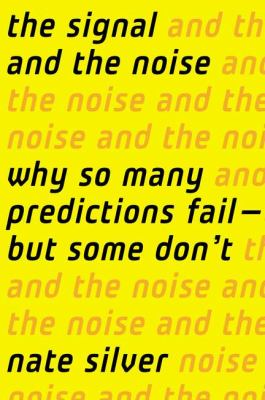
Book
|
The signal and the noise : why so many predictions fail-- but some don't
Copies
9 Total copies, 8 Copies are in,
1 Copies are out.
Title
The signal and the noise : why so many predictions fail-- but some don't
Call No
CB158
Authors
Subjects
Language
English
Published
New York : Penguin Press, 2012.
Publication Desc
534 p. : ill. ;
ISBN
9781594204111
LCCN
2012027308
Dimensions
25 cm.
MLA
APA
Chicago
0
/
0








